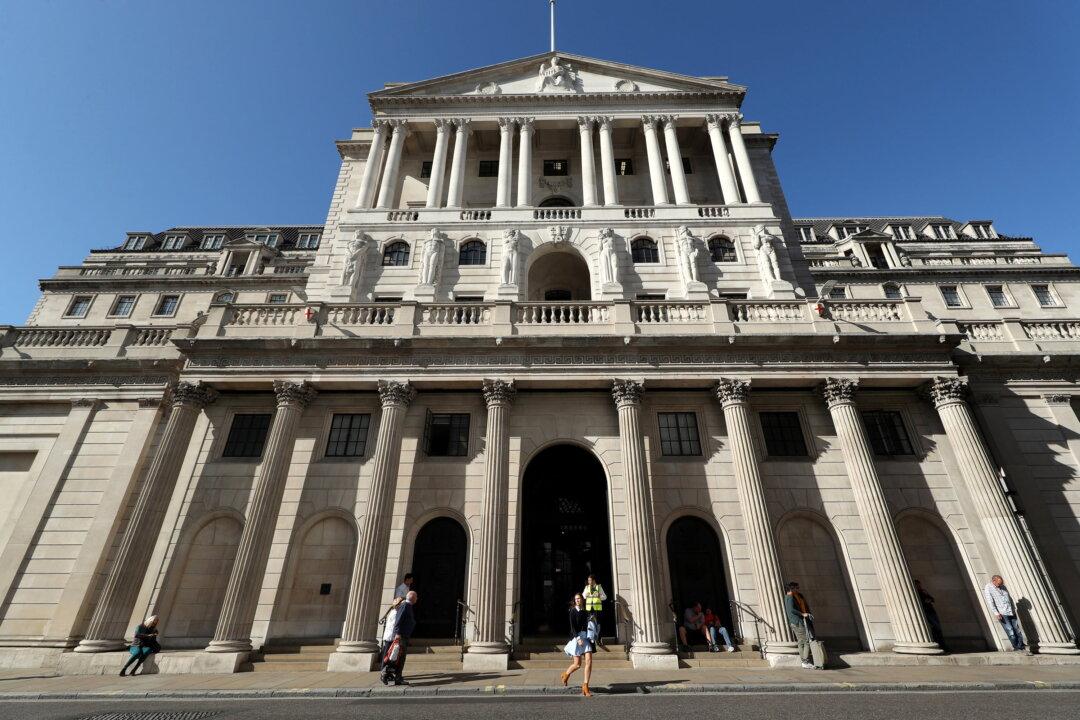Britain’s central bank has raised its benchmark interest rate for the fifth time in a row in an effort to quell the country’s cost-of-living crisis, becoming the latest monetary authority to tighten in response to runaway inflation.
Policymakers at the Bank of England (BOE) decided on June 16 to raise the so-called Bank Rate by 0.25 percentage points to 1.25 percent, with three of the nine-member Monetary Policy Committee (MPC) voting for an even bigger 50 basis point hike.





